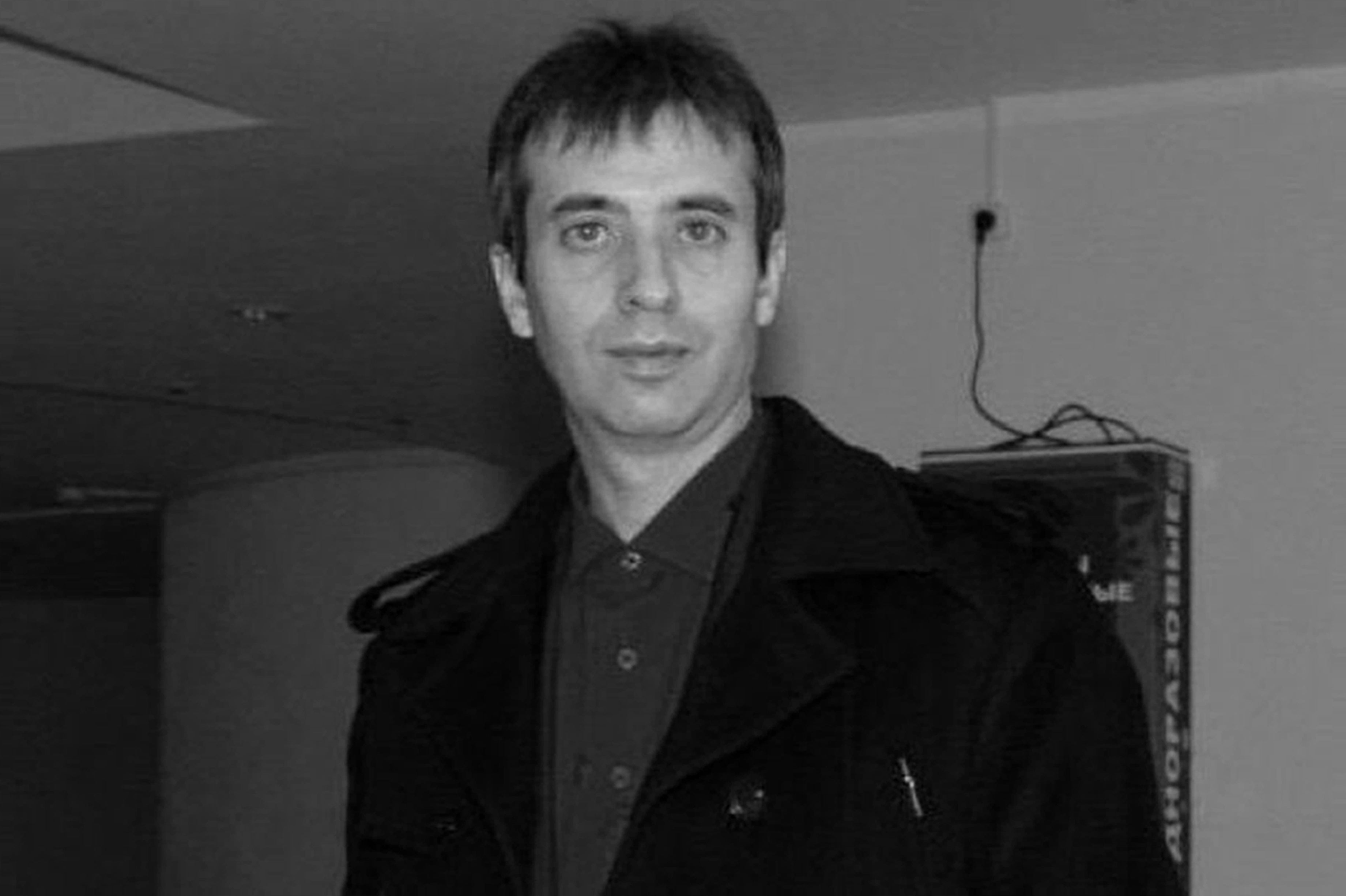No other European country has jailed as many political dissidents – it has to stop
Vadzim Hrasko has become the fourth political prisoner to die in custody in Belarus since the fraudulent 2020 election returned Aleksandr Lukashenko – Europe’s last dictator – to the presidential palace. Will you now help us free the hundreds of opponents still in prison, ask Valery Tsepkalo and Veronika Tsepkalo

A few days ago, Vadzim Hrasko, a 50-year-old political dissident, died of pneumonia in the prison where he was being detained by the regime in Belarus.
Following his arrest last summer for donating to opposition causes, Hrasko, an IT expert, had been sentenced to three years in Vitba-3, a penal colony in Vitebsk, near the Russian border, where around a third of the 1,000 inmates are political prisoners.
According to human rights activists, Hrasko is the fourth political prisoner in Belarus to have died in custody since the fraudulent 2020 presidential election, in which Aleksandr Lukashenko – Europe’s last dictator, who has ruled since Belarus won its independence in 1994 – was returned to office.
In the four years since Lukashenko’s re-election, more than 50,000 people have been detained for political reasons. Europe has not seen the incarceration of dissidents on this scale since the Second World War.
In Belarus, arrests take place daily. People are jailed for commenting on the news, for wearing red and white clothing (the flag of Belarus was once a white flag with a red stripe, which has been latterly adopted as a symbol of opposition to the Lukashenko regime), even for having piercings and tattoos.
According to data from human rights groups, in Belarus right now, there are around 1,500 political prisoners; however, the real figure is more likely to be around 5,000. Among them are hundreds of journalists, trade union leaders, teachers, doctors, musicians, workers, students, and even elderly and disabled people, all imprisoned for political reasons.
Among them are Ales Bialiatski, the Sakharov Prize and Nobel Peace Prize laureate; the democratic trade union leader Aliaksandr Yaroshuk; courageous campaigners including Siarhei Tsikhanouski, Viktar Babaryka, Maria Kalesnikova, Mikola Statkevich and others, who wanted to change their country for the better by participating in the 2020 presidential election, but were sentenced to prison, with terms ranging from 10 to 24 years.
Many of the political prisoners are female, and include famous sportswomen, Olympic and World champions. Volha Khizhynkova, a former Miss Belarus, has served prison time for taking part in illegal demonstrations.
Thanks to the political climate, hundreds of thousands of Belarus citizens have fled their homeland and are unable to return. Lukashenko’s regime now plans to deprive those who have left the country of their right to citizenship.
We appeal to politicians, trade unions, journalists, opinion leaders, and people of good will around the world to support our civil campaign to free Belarus political prisoners.
We call on British prime minister Rishi Sunak, the heads of government of the EU and other countries to issue an ultimatum to Mr Lukashenko to release all political prisoners – otherwise, all freight traffic from Belarus to the EU countries must be blocked.
We demand that exhaustive measures be taken to ensure the safety of the hostages and, if necessary, to organise their evacuation to safe countries.
The commercial interests of certain individuals cannot be compared with human obligation to save the lives of political hostages in Belarus. The civilised world cannot calmly observe the atrocities of the regime and sufferings of the people in Belarus.
We ask the UK parliament to declare Mr Lukashenko a terrorist, and his regime a terrorist organisation, in accordance with the Geneva Declaration on Terrorism of 21 March 1987.
We request the opening of criminal cases in European countries and appeal to the prosecutor general of the International Criminal Court in The Hague to issue an arrest warrant for Lukashenko on charges of genocide, crimes against humanity and unleashing war against Ukraine. The Belarusian Women’s Foundation and other organisations have provided exhaustive evidence of the crimes committed.
The moral obligation of the free world is to release the people who fight for freedom and democracy in Belarus.
Veronika Tsepkalo is head of the Belarus Women’s Foundation. Dr Valery Tsepkalo is a former ambassador to Washington, and ran as a presidential candidate in Belarus in 2020






Join our commenting forum
Join thought-provoking conversations, follow other Independent readers and see their replies
Comments